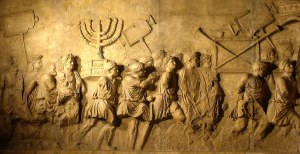Blind Willie Johnson: Lamps, Middle Eastern Weddings & Justice
Blind Willie Johnson is one of the most influential of the early bluesmen, with his songs , covered down through the years by Rev Gary Davis and Fred McDowell, but also by more recent rock bands like the Grateful Dead, Led Zeppelin, Bruce Springsteen and the White Stripes.
Johnson has the distinction of having one of his songs feature on a special recording sent aboard the Voyager spacecraft, launched in 1977 to head beyond the outer solar system into deep space – the Voyager Golden Record also contains music by Beethoven Mozart and Stravinsky. What any other intelligent life in the universe might make of Willie Johnson’s Dark was the Night is anybody’s guess.
Born in 1897 in Texas, he was blinded at an early age, supposedly caught in a fight between his father and step-mother, who threw a handful of lye, a strong alkali used for cleaning, into his eyes. His life was one of poverty and he died before he was fifty in the most pitiful way imaginable, contracting malaria after sleeping rough in the ruins of his Texas home which had burned to the ground. Reports vary but it seems he was refused admission at hospital either because he was blind or because he was black.
Willie Johnson recorded 30 studio songs for Columbia Records during 1927–1930 and outsold the likes of Bessie Smith with his first 78, I Know His Blood Can Make Me Whole / Jesus Make Up My Dying Bed. The Great Depression, however, just about killedJohnson’s recording career and he spent his life mostly busking and preaching on street corners. He was an accomplished guitarist, playing with a rhythmic picking style or sometimes slide with a brass ring or a knife. Eric Clapton called Johnson’s playing on Nobody’s Fault But Mine probably the finest slide guitar playing you’ll ever hear.”

Keep Your Lamps Trimmed and Burning became a standard of Mississippi Fred McDowell but has been covered recently by Ashley Cleveland, Luther Dickinson and Luke Winslow King.
The song refers to the parable told by Jesus in Matthew 25. 1-12, of ten young women – bridesmaids – five of whom ran out of oil for their lamps. The scene here is the Jewish Palestinian wedding of the first century. Wedding processions from the bride’s to the groom’s home, accompanied by singing and dancing, normally happened at night and hence required light. The lamps in these weddings were probably torches, perhaps sticks wrapped with oiled rags. Women torchbearers led the bride to the bridegroom’s home, joined by the groom and his male friends. In the story that Jesus tells, the bridesmaids are waiting outside the bride’s home for his coming, to escort her to his home. In these traditional weddings the bridegroom’s arrival could often be delayed for hours while the bride’s relatives haggled over the value of presents given them, as they emphasized the bride’s great value. The torches, meantime, typically needed more oil every 15 minutes or so. Half the bridesmaids in the story had made sure that they had enough oil with them and so are ready when at last the groom arrives. The other half end up having to go off to buy oil at the last minute and miss the arrival of he groom, the wedding parade and the wedding.
The crux of the parable comes in Jesus’s warning to his disciples, “Therefore keep alert because you don’t know the day or the hour.” Christians have interpreted this in a number of ways – as a reference to the final judgement, our own deaths or Jesus’s prediction of God’s judgement on Israel because of her rejection of him, which Matthew saw as the fall of Jerusalem and destruction of Israel in A.D. 70. In a sense, it does not matter how we take it, the imperative is to be ready for the day of crisis. Jesus specifically says that the story is about the now-arriving rule of God, so we can take the story to be illustrative of how Jesus followers are to act, against the backdrop of God’s rule, whenever crisis hits.

After evoking the story of the wise and foolish bridesmaids, Willie Johnson’s song tells us not to “get worried,” but rather to “see what the Lord has done.” In a world desperately in need of justice, it’s understanding that what God has done through Jesus has begun God’s world-transformation project, and that we can be involved in that, which will enable us to face the “worry” of the hour of crisis and instead to live in a way that demonstrates the peace and justice of God’s kingdom,.
“Keep your lamps trimmed and burning,” growls out Willie Johnson – the imperative is not to just drift along, hoping that somehow the oil won’t run out, or that the day of crisis will somehow pass us by. Rather we’ve got to keep alert, keep ready, demonstrate God’s new, just way of being human and, as we do so, trust in “what the Lord has done.”
(first published at http://downatthecrossroads.wordpress.com)





